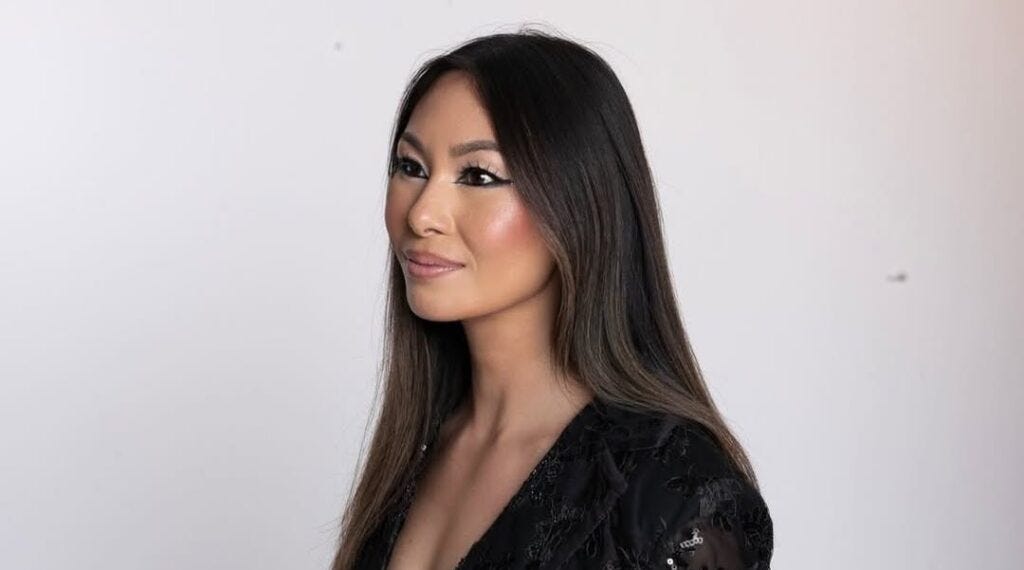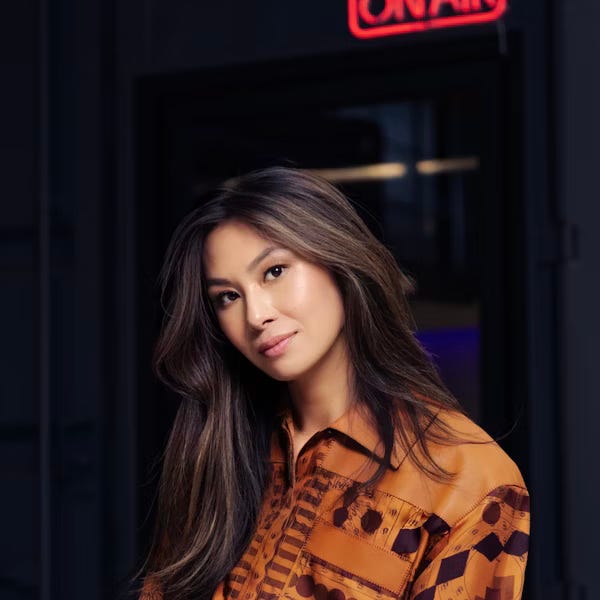From Side Hustles to Silicon Valley Riches: Meet the World's Youngest Self-Made Female Billionaire
In our In the Spotlight series, Lucy Guo, the youngest and richest self-made female billionaire shares how she went from coding bots as a kid to building billion-dollar companies.
In the Spotlight is Youth Observer’s interview series highlighting extraordinary young innovators, trailblazers, and changemakers shaping the world’s future.
For this edition, Youth Observer’s Rehman Siddiq connected with Lucy Guo, who at 30 became the youngest self-made female billionaire, surpassing even Taylor Swift. From dropping out of Carnegie Mellon for the Thiel Fellowship, to co-founding Scale AI at 21, and now launching Passes, Guo has consistently taken bold leaps. In this conversation, she reflects on her upbringing, the challenges of being an Asian American woman in tech, her frugal lifestyle, her vision for AI, and why she’s determined to help creators turn audiences into empires.
At 30, you’ve become the youngest self-made female billionaire, surpassing Taylor Swift. How does it feel to achieve this milestone, and what does it mean to you personally?
Honestly, I don’t think about it that much–it doesn’t mean a whole lot to me on a day-to-day basis. I’ve always been interested in building products that could generate revenue, even from a young age, but becoming a billionaire was never an explicit goal. My reality hasn’t really changed–what truly drives me is the work itself. I wake up focused on how we can make Passes better and serve creators more effectively. If anything, this recognition only strengthens my commitment to helping creators build their own successful businesses. I do hope this shows other young women in not just tech, but any industry for that matter, that these paths are possible.
You started coding as a child and built bots for Neopets to earn money as a teen. What sparked your early passion for tech, and how did those experiences shape your entrepreneurial journey?
My parents are immigrants and really emphasized financial independence growing up, so I figured out how to make money at a young age–from selling Pokémon cards on the playground to building bots on Neopets and Runescape. Being raised in the Bay Area, I was surrounded by emerging technologies and entrepreneurial energy. Teaching myself to code and creating these virtual economies showed me I could build products that actually impact people. Those early experiences taught me to be resourceful and persistent–qualities that are exactly what founders and entrepreneurs need to see success.
Dropping out of Carnegie Mellon for the Thiel Fellowship was a bold move. What gave you the confidence to take that risk, and how did it influence your path to success?
I operate on conviction. When I deeply understand a problem and see a solution that others either don’t see or don’t feel compelled to act upon, staying put feels riskier than leaping. The Thiel Fellowship gave me the confidence to bet on myself rather than following the traditional path my parents may have envisioned. While I rejected the specific career path they wanted, I still embodied the work ethic they instilled in me. That decision taught me that sometimes the unconventional route is exactly what you need.
You co-founded Scale AI at 21, which now has a $25 billion valuation. What was the biggest challenge you faced in those early days, and how did you overcome it?
As more of these founder stories of younger entrepreneurs are being featured and more publicly received, this constant need to re-establish credibility has definitely improved. However, around the time I was working on Scale AI, this challenge was still very much something I faced, especially as a young Asian American woman in tech. I had to deal with people constantly telling me that I only won hackathons and landed jobs because I was a woman. But I found that the best response to that is to build something undeniably great. Results speak louder than anything else, so I’ve always focused on results in my own work and in how I manage my teams.
As a woman in tech, you’ve broken barriers in an industry where female founders receive just 2% of venture capital. What challenges have you faced, and how do you inspire other women to pursue tech entrepreneurship?
The most insidious barriers aren’t always the explicit biases–though those exist–but the subtle ones that make you question yourself. There are still rooms where I’m the only woman, and people will always have opinions about me. Another barrier I still deal with is people spreading false rumors purely out of envy. But I’ve learned that authentic representation isn’t just about having diverse faces–it’s about having diverse perspectives influencing decisions at every level. I try to be deliberate about opening doors and creating access to networks where many founders from underrepresented groups get stuck.
You’ve founded Passes, a platform empowering creators, with backing from figures like Shaquille O’Neal. What gap in the creator economy did you see, and how does Passes aim to fill it?
I saw creators in my direct circle of friends struggle with monetization. The big platforms were taking massive cuts, the tools were fragmented, and brand deals were inconsistent. While the creator economy was exploding, the infrastructure simply wasn’t keeping pace. Creators with millions of followers were cobbling together five different tools to run their businesses. Yet, there was still this massive gap between the work creators put into their craft and how they were being compensated for it. Passes is built on the principle that creators should own their audience and their revenue. We’re the first actual creator commerce platform—we’re not just trying to take a slice of the creator economy; we’re trying to expand it.
You’ve embraced the FIRE movement and live frugally, shopping at Shein and driving a Honda Civic despite your $1.3 billion net worth. How do you balance this mindset with your high-profile success?
Growing up in a frugal household where financial independence was emphasized shaped my relationship with money. Those immigrant values of being resourceful and not wasteful stick with you. My day-to-day reality hasn't changed much—I'm still focused on building and solving problems. The recognition comes with responsibility to use resources wisely and create impact that matters, not just accumulate for the sake of it.
Who have been your biggest inspirations, past or present, in shaping your approach to entrepreneurship and leadership, and how have they influenced your decisions?
My parents have been huge inspirations—watching them work within systems that weren't designed with them in mind, having to work twice as hard for the same recognition, gave me empathy for creators building businesses on platforms that aren't designed to help them succeed. That experience directly influences how we build Passes. I also surround myself with fellow founders and creatives who really live out their days to the fullest–doing things they love to do while challenging themselves with their career at the same time. Those who challenge conventional thinking and build from conviction inspire me to do the same and prove to me that my approach to entrepreneurship is the way to go.
What advice would you give to young entrepreneurs, especially female entrepreneurs, who are starting their own ventures and facing doubts or obstacles in male-dominated industries?
Your difference is your advantage. For so long, many of us were taught to downplay what makes us different—our cultural backgrounds, our perspectives—to assimilate. I did this too early in my career. But the perspectives you bring from navigating multiple cultures, from seeing systems others take for granted—these are superpowers in entrepreneurship. The world is unfair, and that’s not going to change overnight, so you have to fight and work harder to win. Develop unwavering belief in your vision because the world will test that belief constantly. And when you succeed, create space for others.
With your experience at Scale AI and beyond, where do you see the future of artificial intelligence heading? Should we be scared about its growth, and will it take away jobs or create new opportunities?
I think of AI as a copilot, not a replacement to humans. AI will complement human creativity. Imagine a world where AI can do 80% of the mundane tasks, and that extra 20% can be spent adding human touch, relationship building, and closing deals. That’s where we’re headed, even within the creator economy. The most successful creators will be those who learn to use AI to execute their vision faster and more efficiently. AI can help with production, but the creative vision, the personality, the connection—that needs human oversight. It will create new opportunities by amplifying what humans do best, so we really shouldn’t be scared about its growth.
Passes has faced legal challenges regarding content moderation. How are you addressing these issues, and what steps is Passes taking to ensure a safe platform for creators and users?
We take platform safety seriously at Passes and we’re continuously improving our content moderation systems. We’re building tools that protect both creators and users while maintaining a creator-first approach that makes Passes different. Safety and creator empowerment aren’t mutually exclusive—we can build the best platform with the best tools while ensuring responsible practices.
You’ve said you want to create “unicorn creators” through Passes. What’s your long-term vision for the creator economy, and how do you plan to help young creators achieve financial independence?
I want to turn our creators on Passes into billionaires—unicorn creators. We’ve already made many millionaires at Passes, and creators are buying their first homes, paying off student loans, retiring their parents, etc. More creators are building billion-dollar brands like Hailey Bieber’s Rhode and Logan Paul’s Prime, born and thriving purely from creator audiences. These creator-founded businesses have a significantly lower creator acquisition cost and AI is going to copilot this for creators even more. Again, I see AI becoming creators’ best copilot, helping them scale their time and grow income faster. The boundary between physical and digital experiences is blurring. Creators will design experiences that move seamlessly between online and offline. My vision is helping creators build sustainable businesses and reach their potential—turning audiences into empires.





And don’t even get me started on the AI. If this is the path our youth is taking, we’re doomed. Completely.
Billionaire is a mental illness. The need to amass that much wealth for yourself rather than helping those in need is a mental illness and it should be illegal for anyone to have that much money. They should be taxed until they have $100 million and the rest goes to humanity. Forgive me for not celebrating a woman embodying the same horrid behaviors the worst men alive are displaying. This is what’s destroying humanity & the earth. Not at all what we should be considering successful. It’s disgusting.